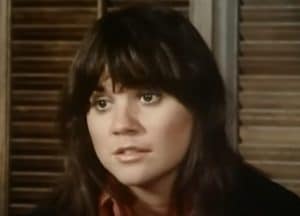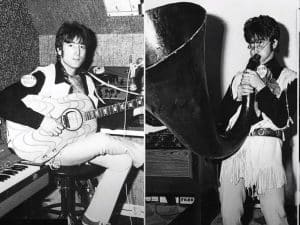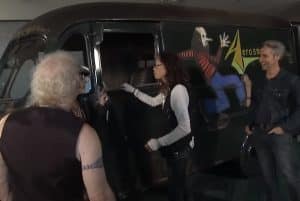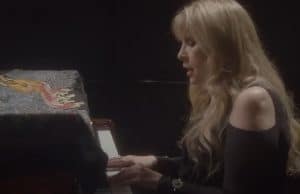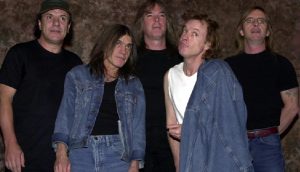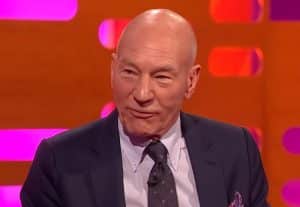John Lennon Was Insulted In Beatles Song
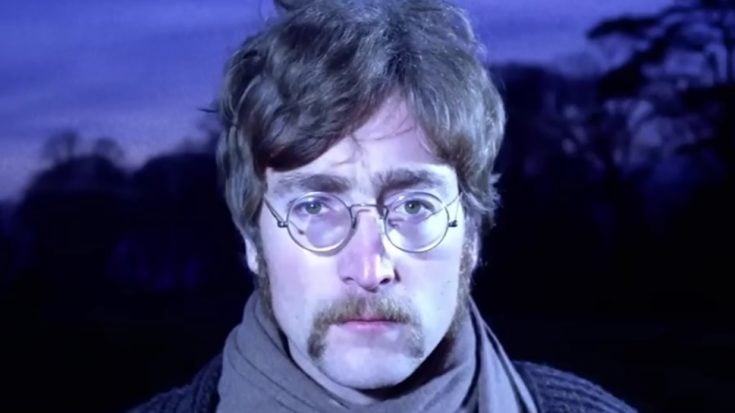
via Biographer / YouTube
The transition of The Beatles into Revolver was nothing short of revolutionary, both for the band itself and for the entire music industry. It marked a pivotal moment in their career, as they shed their clean-cut image from the early ’60s and embarked on a bold sonic experiment.
It was as if they had stepped through a musical wormhole, emerging on the other side as entirely different artists.
Revolver signaled a departure from the Beatles’ earlier, more straightforward pop sound. It was a heady mix of innovation and exploration, with each member of the band pushing their creative boundaries.
Paul McCartney and John Lennon 1966
the #beatlesWe’re on Instagram, follow us! https://t.co/KuCPjtAN7d pic.twitter.com/PETv9l2PHU
— The Beatles Photos (@TheBeatlesPix) December 23, 2022
But the tiresome years before their metamorphosis, along with the controversies hounding them (with the most recent that time basically made their US tour a hellish experience), the Fab Four, though more mature creatively, were also tired and jaded.
This was probably the reason why, when the Lennon-McCartney songwriting duo tackled “Eleanor Rigby”, an incident left a bitter taste in John Lennon’s mouth; a sour experience that he would carry until his death in 1980.
In the famous 1980 interview Lennon and Yoko Ono did for Playboy, the influential Beatle revealed how McCartney disrespectfully threw out “Eleanor Rigby” in the air when he asked the song to be completed.
“Hey, you guys, finish up the lyrics.”
Lennon said that an insensitive Paul wrote only the first line of “Eleanor Rigby” and bounced, busying himself with whatever else that wasn’t songwriting.
“But by that time he didn’t want to ask for my help, and we were sitting around with Mal Evans and Neil Aspinall, so he said to us, ‘Hey, you guys, finish up the lyrics.’,” Lennon shared.
He recounted: “Now I was there with Mal, a telephone installer who was our road manager, and Neil, who was a student accountant, and I was insulted and hurt that Paul had just thrown it out in the air. He actually meant he wanted me to do it, and of course, there isn’t a line of theirs in the song because I finally went off to a room with Paul and we finished the song.”
View this post on Instagram
Lennon felt insulted, as this “kind of insensitivity” wasn’t something a veteran songwriting partnership should have. Instead of the usual back-and-forth that they did, McCartney avoided asking for help from Lennon, and instead vaguely pitched out an instruction to no one in particular.
Though he did not like how Macca casually stomped on something he considered sacred, Lennon still did his part. Which is like 95 percent of the song.
“Ah, look at all the lonely people.”
“Oh, he had the whole start: “Eleanor Rigby” picks up the rice in the church where a wedding has been,” Lennon recalled in the interview. “And he had the story and knew where it was going.”
He shared that they initially came up with a Father McCartney, before ultimately settling for Father McKenzie “even though McCartney sounded better”. They continued working on it and added and removed characters and ideas.
“It’s hard to describe, even with the clarity of memory, the moment the apple falls. The thing will start moving along at a speed of its own, then you wake up at the end of it and have this whole thing on paper, you know? Who said what to whom as we were writing, I don’t know.”
John Lennon 1966 – The #Beatles pic.twitter.com/fs2OSF7gdd
— Beatles Archive (@BeatlesArchive2) March 30, 2019
“Eleanor Rigby” would go on and become a major hit in the United States, reaching its peak at No. 11 on the Billboard Hot 100 and maintaining a presence on the chart for eight consecutive weeks.
Revolver, on the other hand, dominated the Billboard 200 chart for an impressive six weeks and had a total run of 85 weeks on the chart. Across the pond, in the United Kingdom, “Eleanor Rigby” achieved even greater popularity.
It was released as a double A-side single alongside “Yellow Submarine” and held the No. 1 position on the UK singles chart for a remarkable four weeks, with a total of 13 weeks on the chart.
Meanwhile, Revolver did even better by reigning at the top of the UK album chart for seven consecutive weeks and remaining on the chart for a total of 34 weeks.
Lennon was truly a phenomenal songwriter, fashioning a classic hit out of a song that he didn’t even like working on.
Revolver changing the landscape of music
Rubber Soul was the preface of what was to come: a matured Beatles who grew out of their mop-tops and finally blossomed into the artists that they were destined to be.
After surviving the aftermath of the controversial “were more popular than Jesus” remark from Lennon, the tedious tours took a toll on the Fab Four. The long rest after Rubber Soul also gave them time to sharpen their tools and explore their creative directions
The boys went back to the studio and created one of rock history’s most important records.
Revolver was a musical masterpiece that not only defined an era but continues to exert an enduring influence on the world of music. Often regarded as one of the greatest albums of all time, and for good reason, this 1966 offering from The Beatles seamlessly blended a diverse range of musical styles, from rock and folk to Indian classical music and avant-garde experimentation.
From the trippy and groundbreaking “Tomorrow Never Knows” to the soulful introspection of “Eleanor Rigby,” the album was a kaleidoscope of musical styles and lyrical themes.
The album’s influence on subsequent generations of musicians is immeasurable. It catalyzed the psychedelic rock movement and inspired countless artists to explore new sonic landscapes.
The use of studio technology on Revolver paved the way for future recording innovations, shaping the way music was produced and recorded in the years to come.




